Hybrid Version (1 hour asynchronous + 2 hours synchronous)
Online Version (3 hours asynchronous)
CMN 279
Introduction to Professional Communication

1. Course Description
This case-based, interactive course introduces students to contemporary strategies of successful communication in professional contexts. Students learn how to analyze audience, situation, and medium to create messages that respond to practical challenges and build productive relationships. Students develop sensitivity to language and tone, learn to organize and convey ideas and information, and select the best means to accomplish their intended purposes.
Last Revised
CMN 124, CMN 201
Antirequisites
CMN 124, CMN 201
Delivery
Lab: 3 hours
2. Course Objectives & Learning Outcomes
- To develop sensitivity to language and tone, learn to organize and convey ideas and information textually, visually, and orally;
- To analyze audience, situation, and medium to create messages that respond strategically to practical challenges and;
- To communicate ethically and effectively in various contexts, genres, and discourse communities.
3. Topics Covered
- Professional communication theory and practice
- Audience analysis and emotional intelligence
- Routine communication
- Negative messages
- Persuasive communication
- Visual communication and social media
- Oral presentations
- Effective teamwork skills and online collaboration
4. Teaching Method
Teaching Method
-
Hybrid Version
This blended version of the course combines asynchronous, synchronous, and experiential Learning. Students will spend one hour per week before class completing activities online in their D2L Brightspace course shell. Students will also spend two hours per week in a classroom with their workshop instructor.
-
Online Version
This fully online version of the course prioritizes asynchronous and experiential learning. Students will engage in weekly online activities. Optional synchronous meetings may be scheduled at the instructor’s discretion, recognizing that there is no set meeting schedule for this version of the course. Students are asked to advise their instructor as soon as possible if the course delivery format will pose a challenge to them in terms of access to technology.
Graded Assignments
-
Hybrid Version
Students will complete at least three assignments in professional communication genres, such as letters, memos, email, social media content, and reports. They will also deliver one professionally related oral presentation with a visual component. Students will also complete quizzes based on materials assigned in advance of each week’s class. Additional in-class and online work may be assigned. The weighting of each assignment will be announced by the instructor.
-
Online Version
Students will complete at least three assignments in professional communication genres, such as letters, memos, email, social media content, and reports. Students will complete some of these tasks as part of experiential learning modules. They will also deliver one professionally related oral presentation with a visual component and will write one major test. Additional online work may be assigned. The weighting of each assignment will be announced by the instructor.
5. Course Materials
Hybrid Version
Meyer, Carolyn. (2020). Communicating for results: A Canadian student’s guide. Fifth Edition. Don Mills, ON: Oxford University Press. Available in print and through online rental. Limited print copies are available on reserve at the Ryerson Library.
Online Version
Students must purchase access to an online experiential learning platform from Ametros Learning. Further information will be posted to D2L Brightspace. Should this purchase result in financial hardship, please contact procomadvising@ryerson.ca to explore possible solutions. Additional supplementary materials, including open educational resources, may be assigned to sections of either version of the course. These will be made available to students under an appropriate license
6. Policy
6.1 University Policies
Students are required to adhere to all applicable university policies found in their Online course shell in D2L and the Course Outline Policies.
6.2 Print and Digital Copying Guidelines:
Toronto Metropolitan University complies with Canada’s Copyright Act which protects both creators/owners and users of copyrighted materials. Students should familiarize themselves with TMU Copyright policies and procedures, and contact the Copyright and Scholarly Engagement Librarian at copyrt@ryerson.ca for questions, concerns and clarification of the copyright rules.
6.3 Turnitin.com
Turnitin.com is a plagiarism prevention and detection service to which Toronto Metropolitan University subscribes. It is a tool that helps instructors determine the similarity between student work and the work of other students who have submitted papers to the site (at any university), Internet sources, and a wide range of books, journals, and other publications. While it does not contain all possible sources, it gives instructors some assurance that students’ work is their own. No decisions are made by the service; it generates an “originality report,” which instructors must evaluate to judge whether something is plagiarized.
Students agree by taking this course that their written work will be subject to submission for textual similarity review to Turnitin.com. All submitted papers will be included as source documents in the Turnitin.com reference database solely for the purpose of comparing the similarity of such papers. Use of the Turnitin.com service is subject to the terms-of-use agreement posted on the Turnitin.com website. Students who do not want their work submitted to this plagiarism detection service must, by the end of the second week of class, consult with their instructor to make alternative arrangements. Even when an instructor has not indicated that a plagiarism detection service will be used, or when a student has opted out of the plagiarism detection service, if the instructor has reason to suspect that an individual piece of work has been plagiarized, the instructor is permitted to submit that work in a non-identifying way to any plagiarism detection service.
6.4 Email Communication
Toronto Metropolitan University requires that any official or formal email communication from students be sent from their official Toronto Metropolitan University electronic accounts.
6.5 Video and Audio Recording
No video or audio recording is permitted in class without the express permission of the instructor.
7. Learning Management System
Toronto Metropolitan University supports Brightspace by D2L as its official Learning Management System. University Policies governing Brightspace have been documented at the Courses @ Toronto Metropolitan University Privacy and Security website.

